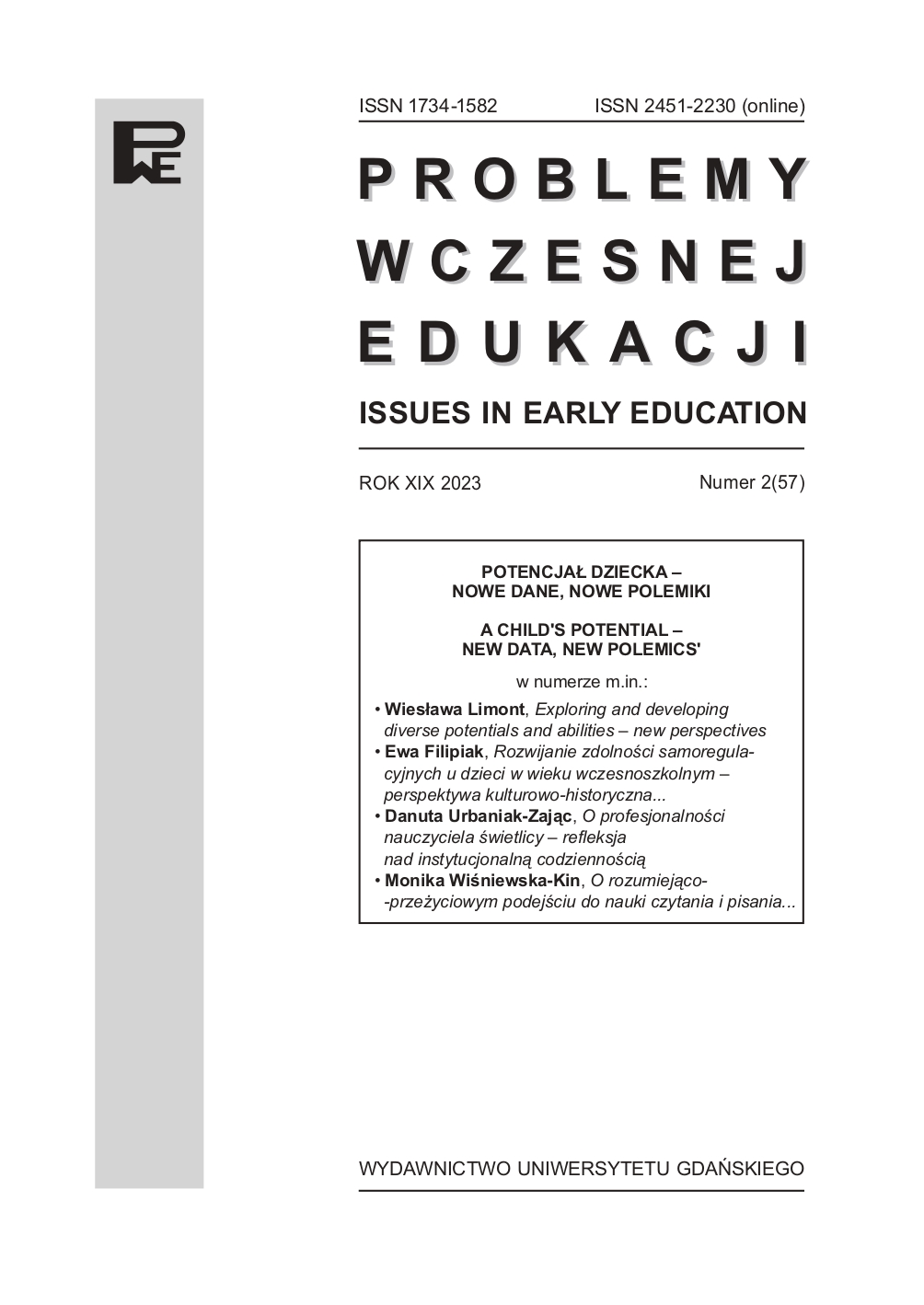Developing self-regulatory abilities in early school children – a cultural and historical perspective: an ethnographic case study
DOI:
https://doi.org/10.26881/pwe.2023.57.02Keywords:
self-regulatory abilities, higher mental functions vs. executive functions, cultural-historical theory of Lev S. Vygotsky, early school age, ethnographic case studyAbstract
The aim of this article is to address the development of a child’s self-regulatory abilities and their significance in enhancing students’ academic achievements. In order to understand the genesis of an individual’s metacognitive processes, the article draws upon the cultural-historical theory of L.S. Vygotsky, wherein self-regulation is closely linked to the development of higher mental functions. Students’ self-regulatory abilities are nurtured through interactions with adults. Teachers, acting as “promoters of students’ self-regulation”, contribute to the emergence of personal planning procedures, control of the child’s own actions, shape learning experiences, and develop cognitive operations necessary for increasingly independent learning. Most researchers believe that school does not teach self-regulation. Self-regulation appears in formal school documentation and declarations, but few teachers make real attempts to deliberately develop it. The article presents an ethnographic case study and analyzes the socio-cultural context of an intentionally created learning environment conducive to the development of self-regulatory abilities in children in their first year of school education. The research encompasses two perspectives: the experiences of the teacher and the children.

 Academic Scientific Journals
Academic Scientific Journals





